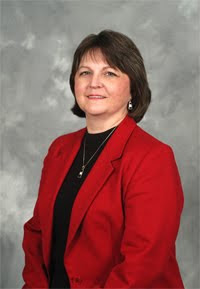 Ferghana.ru photo
Ferghana.ru photoMark Weil,
Uzbekistan's most important theatrical impressario (his family lives in Seattle) was murdered by fundamentalist Islamist extremists--just like Theo van Gogh in Amsterdam--reports the BBC:
A court in Tashkent has found three men guilty of murdering Uzbekistan's most prominent theatre director in 2007.Ferghana.ru has more on the story:
The men said they had planned the murder of Mark Weil in response to his portrayal of the Prophet Muhammad in his play, Imitating the Koran.
Yakub Gafurov, the man who fatally stabbed the theatre director, was sentenced to 20 years in prison.
And two former police officers were sentenced to 17 years each for helping to plot the murder.
The Russian-language Ilkhom theatre company, founded by Mr Weil in the 1970s, staged challenging productions despite Soviet era censorship.
On February 17, 2010 the Mirabad district criminal court held the final session on the case of three defendants: Yokub Gafurov, Alisher Satarov and Kakhramon Pulatov, accused of the murder of Mark Weil, the founder and artistic director of Ilhom Theater.Curiously, the New York Times, which reported the murder in a story by Anna Kisselgoff on September 8, 2007, has not yet published a single story on the trial and conviction of Mark Weil's killers.
The judge Shamsutdinova announced the verdict: Yokub Gafurov is sentenced to 19 year of jail, five of which to be spent in the maximum security penal colony. Satarov and Pulatov will serve 17 years of jail in the standard regime penal colony.
Fatima Pirieva, the lawyer of Gafurov, says that in accordance with the decree of Senate Oliy Mazhlis (the parliament) of Uzbekistan "On amnesty due to 18th anniversary of the Republic of Uzbekistan independence", dated August 28, 2009, there is distinct possibility that Satarov and Pulatov will serve no more than 13 years each. Gafurov’s situation, however, is not the case.
All three deliberate criminals were accused of intended killing under article 97 of Criminal Code with aggravating damages, "motivated by religious prejudices" and "committed by the group of people or member of organized criminal group". According to this article, every defendant could be sentenced to 15-25 years of jail and even imprisonment for life.
At one of the last court sessions the prosecutor demanded 19 year term for everyone. However, only Gafurov that killed Weil is sentenced to this term. The court ignored the fact that the murderer ate the dust.
- I am positive that if Gafurov did not eat the dust this case would be never detected! – Pirieva says.
Another assisting offender Umid Iskhakov (allegedly, the manager of the murderous assault) is currently wanted by police. Assumingly, he left for USA.
According to Radio Free Europe/Radio Liberty, the wanted man "may be living in the United States." If this is true, it raises a serious question: How did a wanted killer of an internationally-renowned theatrical artist manage to obtain a US visa? Who signed off on the decision at the US State Department?
More on this story in the European Jewish Press. Details of the Ilkhom Theatre's production of Puskhin's "Imitations of the Koran" can be found on their website. From Mark Weil's statement:
The poetical spirit of Pushkin - the Russian poet with African roots - is just ABOVE everything, including nationalism and the religious pettiness as well. That is quite possible to be the main reason the Russian poet wrote the Imitations of the Koran.Le Monde carried this story, in French.
We took our time trying to find the right way to understand and express the text - we showed some sketches to the spectators 2 years ago. We were working over the final variant of, when the 11th of September in New York shocked the world - the terrorists tried to approve the action as if the Koran made them to. Also we do understand those who directed that devil's performance in New-York would never take in the Imitations of the Koran performance as any interpretation of Koran on the stage. There appeared a lot of people of different persuasions who were surprised found us working the Koran's theme. What's more they took the Koran as the instruction for the terrorists. However, the fact doesn't surprise us: the world is blind and ignorant still. Our will is Pushkin - who was ABOVE everything - to reconcile us all. It's out of the fact he was interested in nothing but the spirit and the philosophy of the primal source, the beauty of his poetry that he as the great poet appreciated so much.
We do not try to disprove a well-known Kipling's saying that East is east as West is west - they could never change. Our aim is to prove the synthesis of national and cosmopolitan consciousness promotes the creation of the contemporary art, and nothing more.


